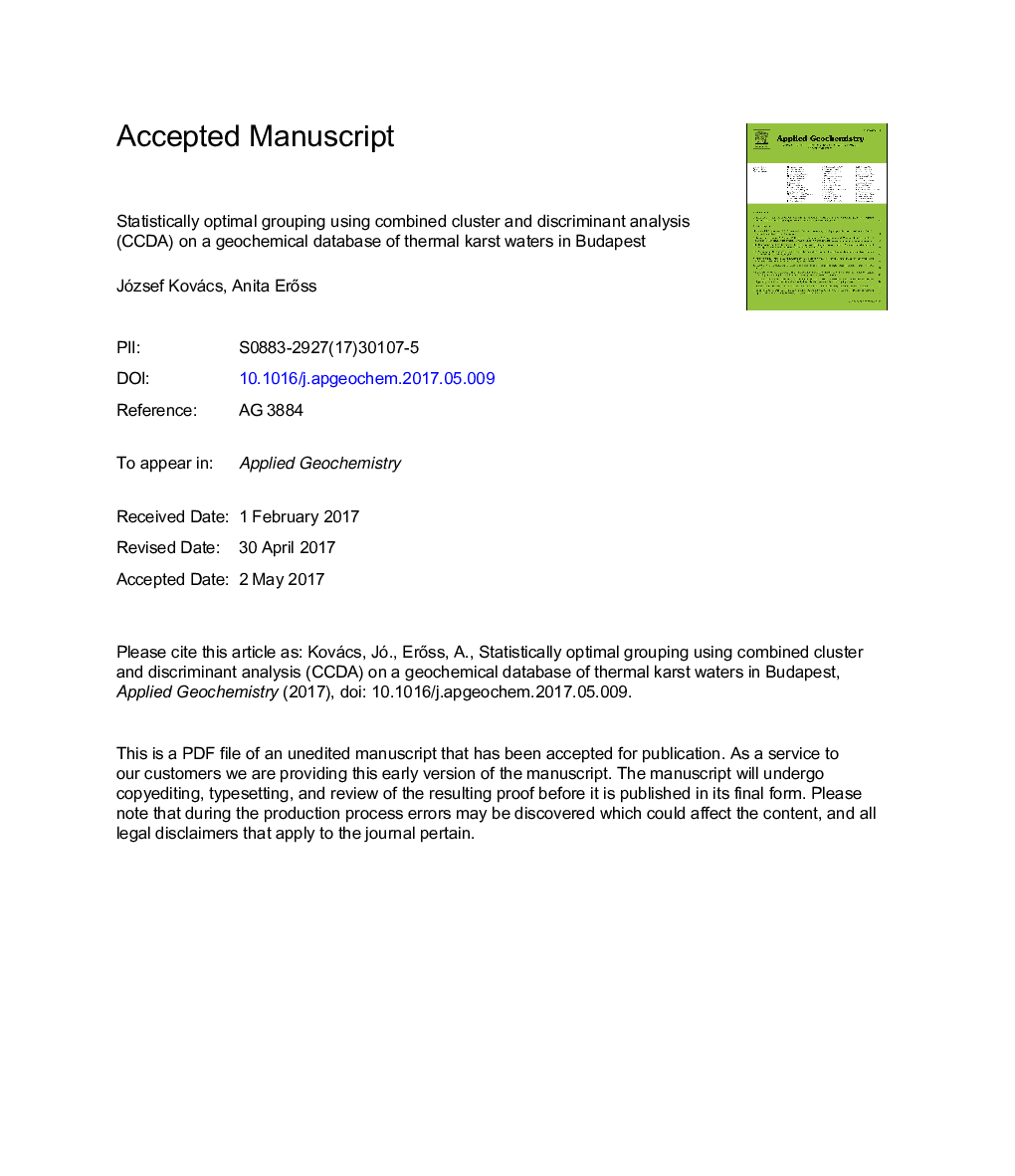| Article ID | Journal | Published Year | Pages | File Type |
|---|---|---|---|---|
| 5752514 | Applied Geochemistry | 2017 | 30 Pages |
Abstract
Budapest, the capital of Hungary, is famous for its abundant thermal waters. The monitoring network of the thermal karst waters of Budapest consists of 27 sampling locations, from which data for six geochemical parameters and temperature were available for the period 1960-2010. Based on this data, the optimal grouping for the sampling locations was sought using combined cluster and discriminant analysis. Furthermore, the homogeneity of the obtained groups, as well as temporal changes in the overall monitoring system were investigated. The seven groups found are in accordance with the previously established hydrogeological conditions, i.e. the grouping can be considered as optimal. The results obtained using combined cluster and discriminant analysis on the geochemical and temperature database of Budapest have important practical implications, since the thermal waters are an intensely used resource. Any artificial intervention will influence locations belonging to the same group, and therefore the optimal grouping of sampling locations will help in the planning of further activities. This case study might serve as an example in other settings where multiple measurements at multiple sampling locations from a monitoring network are available.
Keywords
Related Topics
Physical Sciences and Engineering
Earth and Planetary Sciences
Geochemistry and Petrology
Authors
József Kovács, Anita ErÅss,
